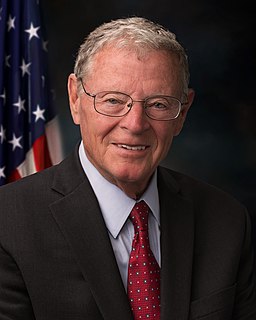A Quote by Stephen Kinzer
What the United States wanted in Guatemala - and in Iran, where the C.I.A. also deposed a government in the early 1950s - was pro-American stability.
Quote Topics
Related Quotes
We often forget that Iran has a long tradition and history with the United States. Iranians have been coming to the United States as students for decades. American businessmen were in Iran developing the oil fields. ...There was an American financial advisor to the Iranian government in the early part of the century.
I have looked at public opinion polls in France in the late 1940s and early 1950s during the height of Marshall Plan aid. They had a very negative attitude towards the United States then. There were negative attitudes towards the United States because of Vietnam. There were negative attitudes about the United States when Reagan wanted to deploy intermediate range ballistic missiles. I don't think the president should base his foreign policy on American public opinion polls, let alone foreign public opinion polls.
Since 1981, after our nations severed diplomatic relations, we've worked through a international tribunal to resolve various claims between our countries. The United States and Iran are now settling a long-standing Iranian government claim against the United States government. Iran will be returned its own funds, including appropriate interest but much less than the amount Iran sought. With the nuclear deal done, prisoners released, the time was right to resolve this dispute as well.
In the Islamic world, the U.S. is seen in two quite different ways. One view recognizes what an extraordinary country the U.S. is.The other view is of the official United States, the United States of armies and interventions. The United States that in 1953 overthrew the nationalist government of Mossadegh in Iran and brought back the shah. The United States that has been involved first in the Gulf War and then in the tremendously damaging sanctions against Iraqi civilians. The United States that is the supporter of Israel against the Palestinians.
The vast Pacific Ocean has ample space for China and the United States. We welcome a constructive role by the United States in promoting peace, stability and prosperity in the region. We also hope that the United States will fully respect and accommodate the major interests and legitimate concerns of Asia-Pacific countries.
Under the current U.S. policy, because of this power struggle, American oil companies can't do business with Iran. So I think the ultimate goal of the U.S. administration in Iran is regime change, to put into power a pro-Western government that will eliminate the strategic challenge to U.S. interests and, at the same time, allow the lifting of sanctions and allowing American oil companies to do business with Iran.
I do believe that the very tense relationship between the United States and Iran presents a challenge to the United States. But to discuss Iran as that type of a threat I find somewhat unconvincing, mindful of the fact that Iran actually doesn't have those military capabilities that would be needed to refer to it as that type of threat.
It was not the United States who invaded Kuwait; it was Iraq. It was not the United States that went to war with Iran; it was Iraq. It was not the United States that fired chemical weapons at Iran; it was Iraq. And it was not the United States that murdered innocent Iraqi citizens with chemical weapons; it was Iraq.
My advice for Obama concerning Iran is just to do what you already promised you would do, open up communications with Iran. Which is what I did after the Shah was deposed, as you know when the revolutionary government came in, I still had diplomatic relations with Iran, otherwise the hostages wouldn't have been there. We had about, as you know, 60 some diplomats in Iran, they had about the same number in Washington.
In the United States, Iran is nothing but a whipping-boy. Few Americans have any real use for Iran. Most of us, what we know and remember about Iran are things like the hostage crisis in 1980, or they think about the Iranian attacks in Lebanon, or on the Khobar Towers. So you don't get a whole lot of political mileage in the United States by going out and advocating better relations with the Iranians.

































